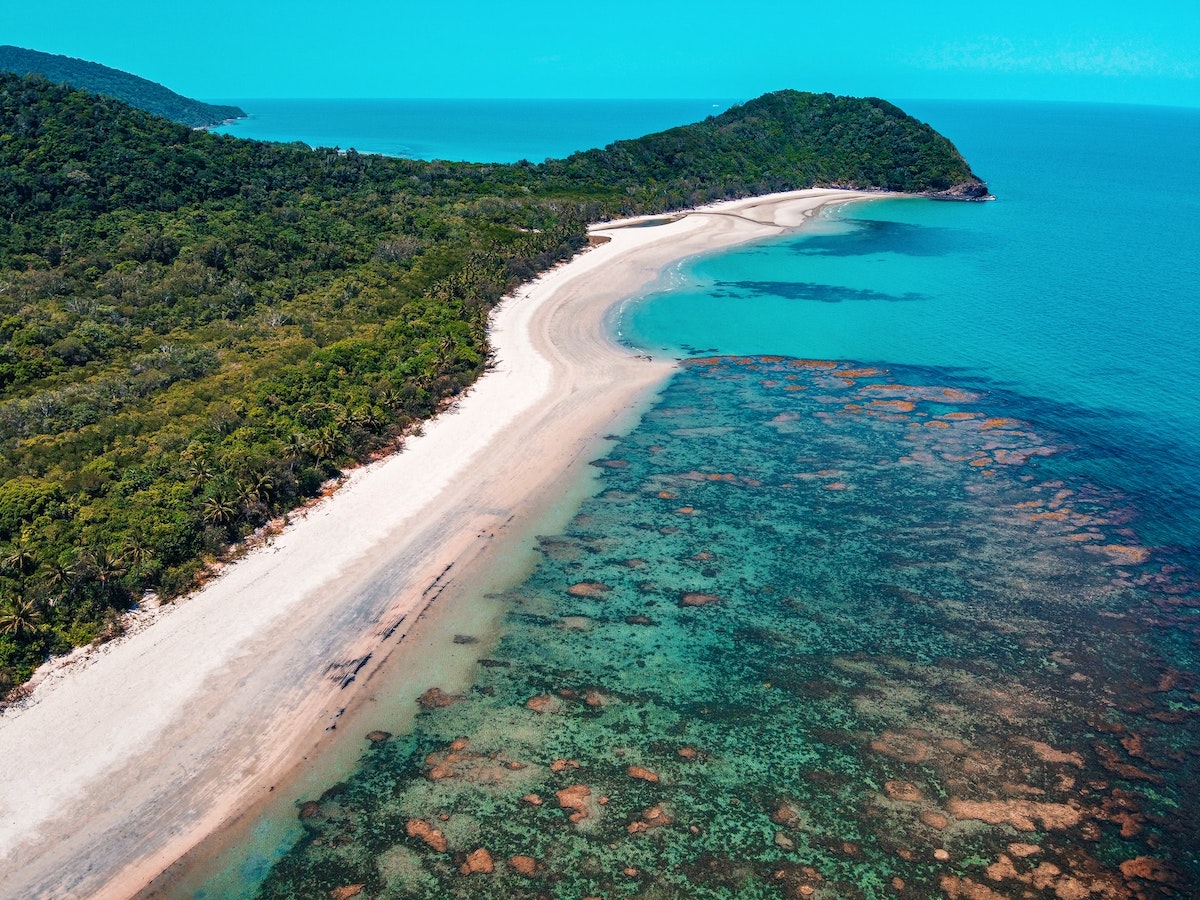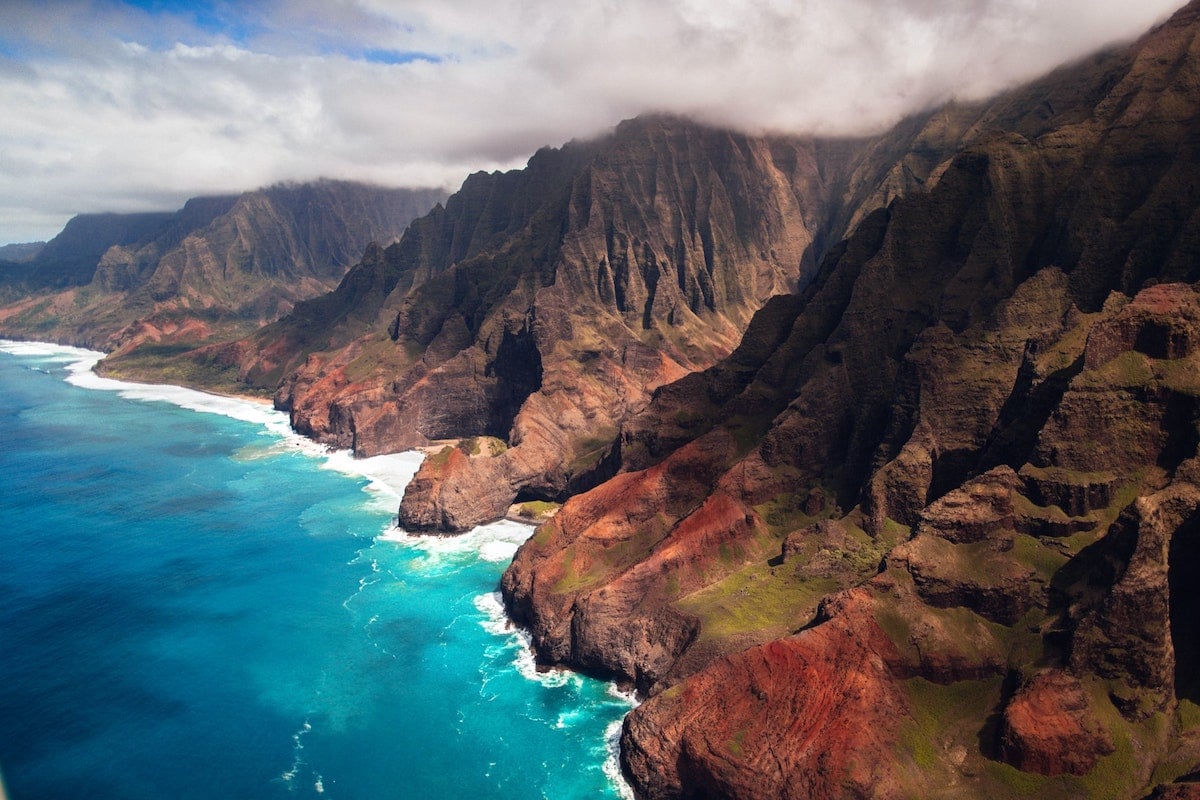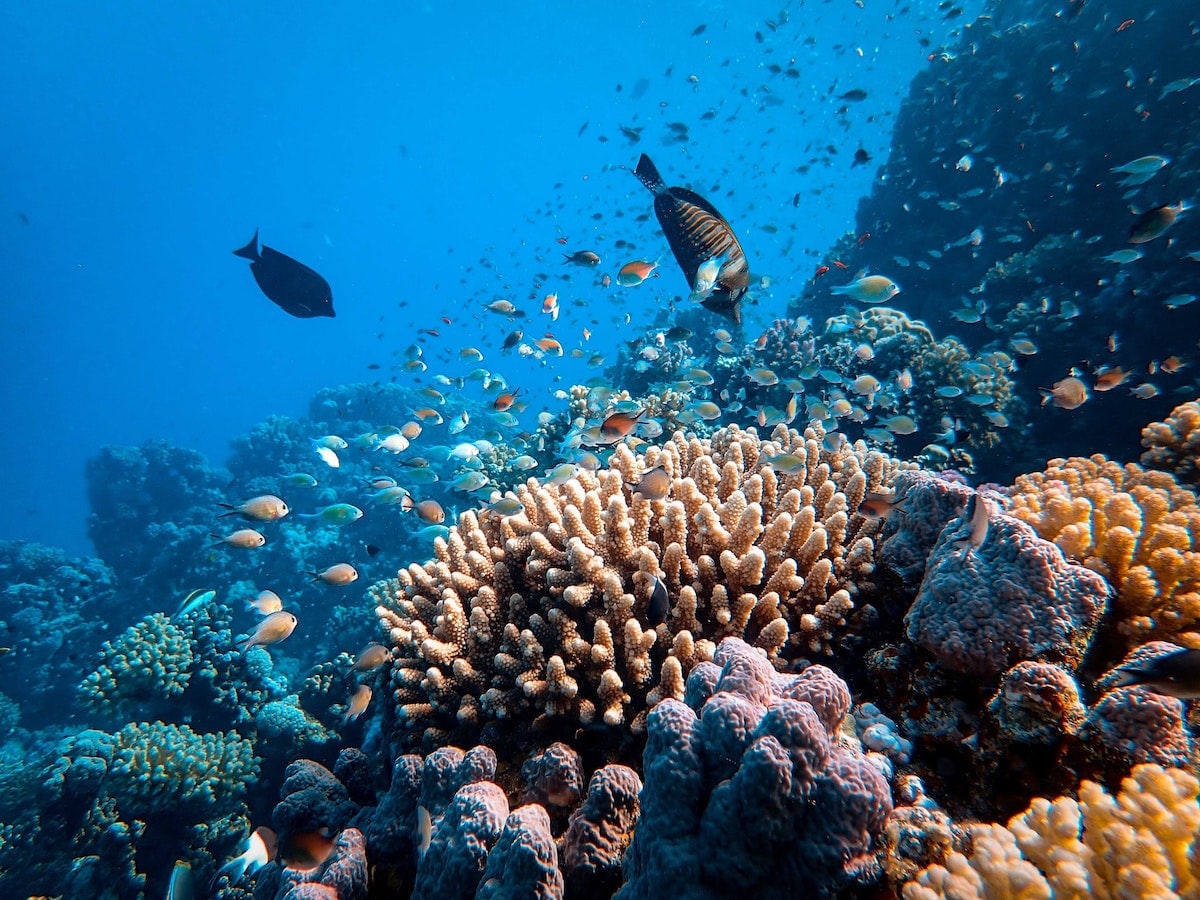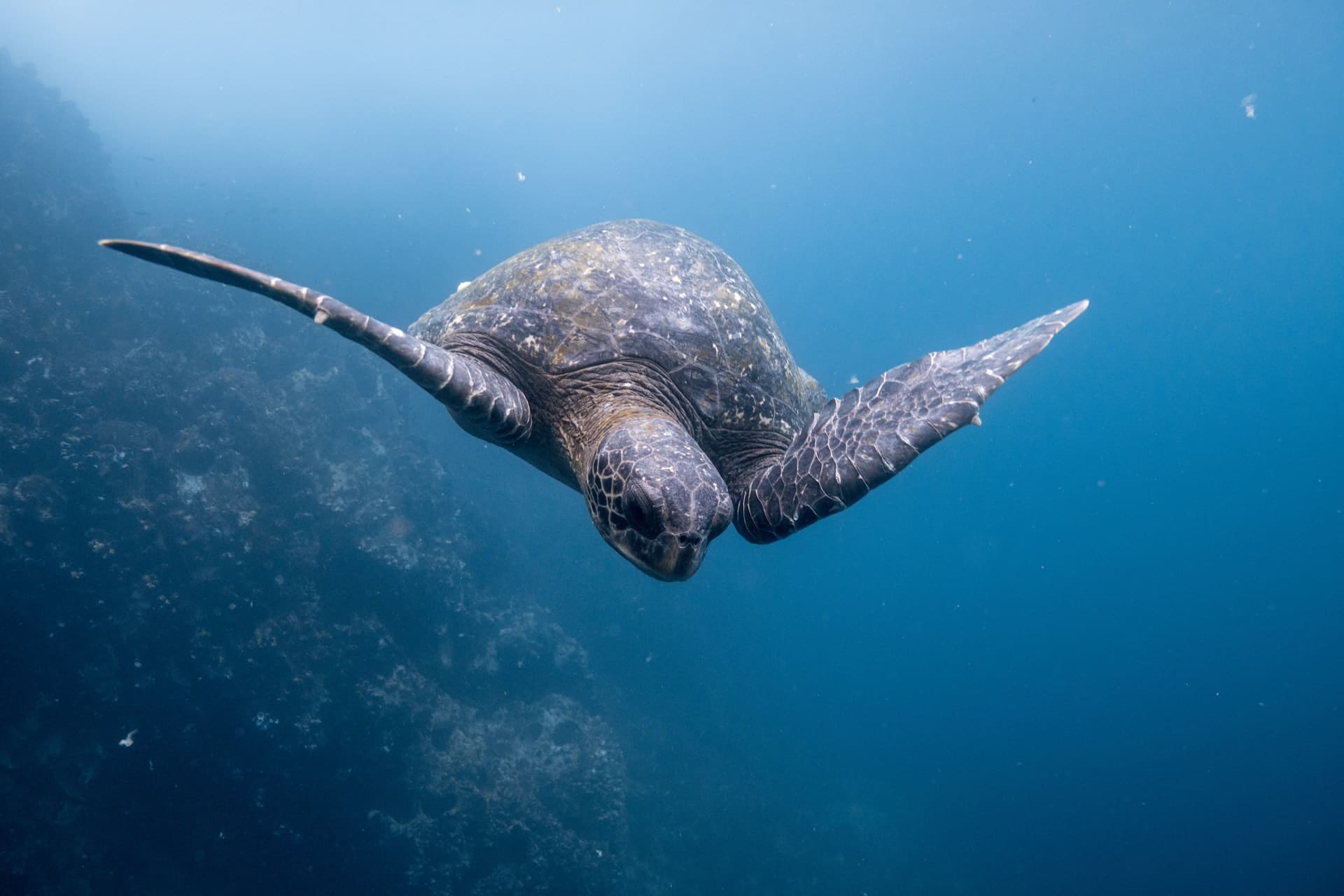Marine Life & Conservation Blogs
The 11 best places to snorkel with sea turtles
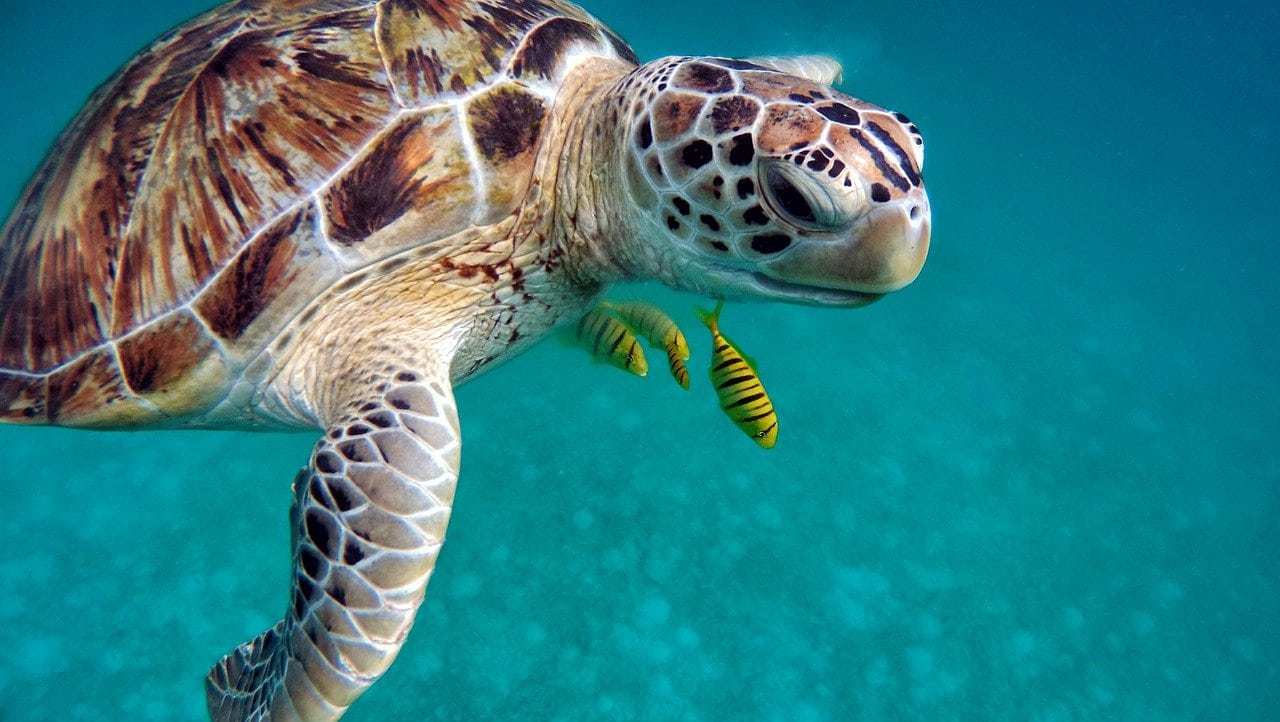
Sea turtles are some of the most remarkable animals you can encounter in our oceans. They have existed for over 100 million years, can live for over a century, and some swim more than 10,000 miles between nesting and foraging grounds each year. There are seven different species of sea turtle, and you can find them at locations around the world. Here is our roundup of the best places to snorkel with these charming animals.
1) Australia
Whether you choose to explore Australia’s eastern or western coast, there are numerous places to go snorkeling with sea turtles. The Great Barrier Reef has world-class snorkeling and hosts six of the seven species of sea turtle. A visit to this special area also offers the chance to explore the oldest rainforest in the world, the Daintree Rainforest. Western Australia also has great snorkeling and numerous sea turtles, especially at Shark Bay, Ningaloo Reef and the Muiron Islands.
2) Malaysia
Mabul, Sipadan and Kapalai offer some of the best and most diverse snorkeling opportunities in the world, especially for sea turtle fans. Sipadan’s bright blue waters are teeming with big fish and huge green sea turtles, whilst Mabul is the place to go for spotting sea turtles cruising along coral reefs. Make sure you visit in August if you want to see nesting sea turtles at Sipadan.
3) The Maldives
Maldives scuba diving is high on many divers’ wish lists, but you don’t need to be a diver to make the most of this stunning destination. There are excellent snorkeling opportunities and numerous sea turtles throughout the atolls, including leatherback, loggerhead, hawksbill, green and olive ridley sea turtles. To surround yourself with green sea turtles, visit Lhaviyani Atoll and especially the seagrass meadows of Kuredu Island. This idyllic atoll hosts almost half of the Maldives’ green sea turtles.
4) Wakatobi, Indonesia
Wakatobi is renowned for having some of the world’s most biodiverse reefs and has easy snorkeling conditions. Sitting in the Coral Triangle, this special destination has everything from prized critters through to schooling reef fish and plenty of sea turtles. Snorkel over the colorful outer reefs to find adult Hawksbill turtles munching on huge sponges or simply walk off the beach to look for juvenile and adult green sea turtles at the seagrass meadows.
5) Akumal, Mexico
Mexico is another top destination for snorkeling with sea turtles, especially at Akumal in the Yucatan Peninsula. Akumal means ‘the place of the turtle’, so it’s no surprise to find out this is a great place to swim with sea turtles. With numerous green sea turtles and loggerheads there, which are used to the presence of humans, it’s an experience not to miss.
6) Hawaii
If you’re visiting Hawaii, you have a good chance of encountering sea turtles whichever island you choose, but Oahu is one of the best. You can either join snorkeling tours to meet the turtles or explore without a guide. Laniakea Beach (also known as Turtle Beach) is one of the most popular places to swim with turtles but there are plenty of quieter turtle hotspots around the island.
7) Egypt
People go scuba diving in Egypt every year and with good reason. It is one of the most accessible and affordable places to experience vibrant reefs, warm water snorkeling and year-round sunshine. It truly has something for everyone, including snorkelers. You can spot sea turtles on any of Egypt’s reefs but visit Abu Dabbab Beach at Marsa Alam for almost guaranteed green sea turtle encounters. You will also be able to swim with dugongs whilst you’re there.
8) Greece
Zakynthos (also known as Zante) is the top place in Europe to swim with sea turtles. In the summer months, thousands of loggerhead turtles head inshore to lay their eggs on the beaches. You can snorkel with them at Zakynthos and at nearby Cameo Island, or go island hopping and watch them come ashore at Kefalonia’s beaches.
9) The Galapagos Islands
Wild and remote, the Galapagos Islands are an iconic haven for wildlife above and below the waterline, and sea turtles are no exception. There are numerous snorkeling spots where you’ll find sea turtles and Galapagos green sea turtles nest on some of the islands’ beaches. Wherever you snorkel, the waters are teeming with life. There is nowhere else in the world where you can swim with sea turtles, marine iguanas, sea lions, penguins, schools of fish and more. Don’t miss it.
10) French Polynesia
French Polynesia, with its lush volcanic islands, luxurious resorts and soft white sands, is the perfect destination to get away from it all. As if that’s not enough, French Polynesia is also stunning underwater, with calm lagoons ideal for snorkeling, healthy coral reefs and abundant marine life. You can go snorkeling with sea turtles at Tahiti and Moorea, where the shallow waters make it ideal for new snorkelers.
11) Barbados
Barbados is an idyllic Caribbean destination, with azure waters and numerous sea turtles, including green, hawksbill and leatherback turtles. There are a handful of snorkeling tour operators and plenty of infrastructure, meaning you can get out and swim with the turtles easily. If you don’t want to join a tour, grab your snorkeling gear and go in search of sea turtles off the west coast beaches. Make sure you follow local snorkeling safety guidelines and enjoy.
Kathryn Curzon, a shark conservationist and dive travel writer for Scuba Schools International (SSI), wrote this article.
Blogs
Saba’s Plan for a Coral Comeback

Saba has an exciting new initiative to restore its coral reefs. This new project, running from 2024 to 2026, will focus on reviving key species in the island’s underwater ecosystems. With a collaborative team from the Saba Conservation Foundation (SCF) and Van Hall Larenstein (VHL) University of Applied Sciences, the project aims to restore both corals as well as sea urchins.
This initiative is centered around coral restoration, specifically reviving two essential coral species—staghorn coral (Acropora cervicornis) and elkhorn coral (Acropora palmata). By mapping parent colonies and using a technique known as coral gardening, SCF will create and maintain coral nurseries. These corals will eventually be outplanted at key reef sites around Saba to not only expand the number of coral colonies, but also provide essential fish habitat. The project focusses on installing coral nurseries, training staff with the newest techniques and starting with the restoration of key reef sites.

Reef Cleaners to the Rescue
It’s not just corals getting a makeover—this project also shines a spotlight on the essential role of grazers, particularly sea urchins. VHL is leading the charge on cultivating and restocking two key sea urchin species, West Indian sea egg (Tripneustes) and long-spined sea urchin (Diadema), known for their ability to keep algae in check. By removing algae, which are important competitors of corals, they help the coral to thrive. By restoring these “reef cleaners,” Saba’s project will give corals the breathing room they need to grow, setting the stage for a healthier, more balanced marine ecosystem.
From Tiny Urchins to Big Goals
The project will be funded as part of the Dutch Government’s Nature and Environment Policy Plan (NEPP) 2020-2030 for the Caribbean Netherlands, a comprehensive initiative aimed at conserving and restoring the unique natural environments of the Dutch Caribbean islands, including Saba, St. Eustatius, and Bonaire. This project is aiming for big milestones: build and maintaining coral nurseries, the expansion of urchin cultivation facilities, and the creation of a dedicated research center. By 2026, the project hopes to ramp up coral and grazer restoration, with the ultimate goal of extending these efforts across the Dutch Caribbean. By linking local initiatives to broader regional goals, Saba’s restoration project promises to leave a lasting impact on both the environment and the community.
Find out more about the DCNA at dcnanature.org.
Blogs
Reef-World marks two decades of marine conservation: strengthening impact amid coral reef threats

Empowering ocean stakeholders to tackle future challenges and ensure the survival of coral reefs and humanity
2024 marks the 20th Anniversary of The Reef-World Foundation’s tireless efforts for global coral reef conservation. The UK charity is the international coordinator of the UN Environment Programme’s Green Fins initiative, known as the leading voice in sustainable marine tourism. Today, Reef-World released its 2023-2024 Impact Report outlining a year of substantive growth and impact in its marine conservation programmes.

Impact Report Highlights:
- Impressive improvements in environmental behaviours to protect coral reefs by the marine tourism industry as the global participation of Green Fins increases.
- Continued capacity building for government and NGO staff to effectively manage marine tourism activities in Asia, Caribbean and Red Sea regions.
- For the first time in Green Fins’ 20-year history, tourism operators have achieved ‘Best Environmental Performer’ status by demonstrating the lowest possible environmental impact in their environmental assessments. In 2024, three dive operators achieved this challenging milestone.
- Significant increases in global participation of Reef-World’s innovative digital conservation tools.
- 138 Green Fins dive operator members achieved the strict threshold for PADI Eco Center recognition.
- Developed four new educational materials and translated two into 16 languages to support the marine tourism industry in achieving sustainability targets.
- Establishing a new Reef-World Development strategy and recruiting new roles – Development and Programmes Managers.
- Reef-World’s board welcomes new Chair and Trustees strengthening organisational leadership.

Reef-World started as a one-person mission to inspire and empower communities to act in conserving and sustainably developing coral reefs and related ecosystems. Today, the team of 12 continues to meet this mission by inspiring and empowering the global marine tourism community to be exemplary sustainability leaders by using the Green Fins guidelines and tools to simultaneously use and protect the world’s precious reefs.
In April 2024, the fourth global coral reef bleaching event was confirmed. Reef-World’s work has never been more urgent as the marine environment, and the benefits they provide humanity, continue to be eroded by global threats. The reduction of local threats, like those from the marine tourism industry, is an essential step to ensuring a future where coral reefs survive and continue to support the millions of people who depend on their ecosystem benefits. Reef-World’s work buys time for coral reefs and related ecosystems to be resilient to the impacts of global threats.
“Right now our corals are facing the greatest fight of their existence as the terrifying predictions of the steps towards their complete extinction are starting to come true. But all is not lost, reefs are resilient and they have existed on this planet for millions of years. We must take action now, to buy time for reefs by reducing threats facing them and allowing them to react and adjust to the changing environment they need to survive in.” – Chloe Harvey, Executive Director
Looking Forwards:
Like coral reefs, the Reef-World team needs to be resilient in the face of the complex challenges of the conservation sector. Reef-World has invested significantly in developing a Culture of Care to ensure the well-being of its team on a daily basis, continuing to be an exemplary employer to enable its team to best achieve the mission for coral reef conservation.
With the foundations of a Culture of Care and organisational development laid, Reef-World is emerging from the end of a natural organisation life cycle, that brings the challenges of growth and scale, stronger than ever. With a new strategy in place to generate much needed resources, Reef-World is excited for the opportunities to leap forward, continue to scale our impact and lean into new innovations and untapped opportunities for marine conservation.
We continually strive to become a forward-thinking organisation that delivers on our goals and commitments to our stakeholders with fresh approaches and not being afraid of steering away from a “normal approach.” This approach is not only applied to our programmes of work but also internally and carries over to our Culture of Care for our team.” — JJ Harvey, Operations Director

The Reef-World Foundation is immensely grateful for the continued support of its grant funders: UN Environment Programme, IUCN’s Blue Natural Capital Financing Facility, Adventure Travel Conservation Fund, PADI Aware Foundation, and World Nomads Footprints Program.
Reef-World would also like to express its gratitude to international partners whose vital support has resulted in significant tangible benefits for our work and mission: PADI; Professional SCUBA Schools International (PSS); Explorer Ventures; 1% for the Planet; ZuBlu; Snorkel Venture, GSTC; Dive O’Clock; Seven Dragons; DiveAssure and Eco Beach, without whom these achievements would not be possible.
The full 2023–2024 Annual Impact Report is available on Reef-World’s website.
-

 News2 months ago
News2 months agoIconic SS United States to become the World’s Largest Artificial Reef
-

 News3 months ago
News3 months agoBook Review – 52 Assignments: Underwater Photography
-

 Gear News3 months ago
Gear News3 months agoDYNAMICNORD – New German diving brand enters the British market
-

 News3 months ago
News3 months agoExploring Cenote El Pit: A Diver’s Dream
-

 Gear News3 months ago
Gear News3 months agoTry BARE drysuits (and maybe even win one!) this Friday with Sea & Sea at North West Dive Fest
-

 Marine Life & Conservation3 months ago
Marine Life & Conservation3 months agoBook Review: Coral Triangle Cameos
-

 Blogs2 months ago
Blogs2 months agoDive the Egyptian Red Sea this Autumn with Regaldive
-

 News3 months ago
News3 months ago2024 Ocean Art Underwater Photo Competition Announced


